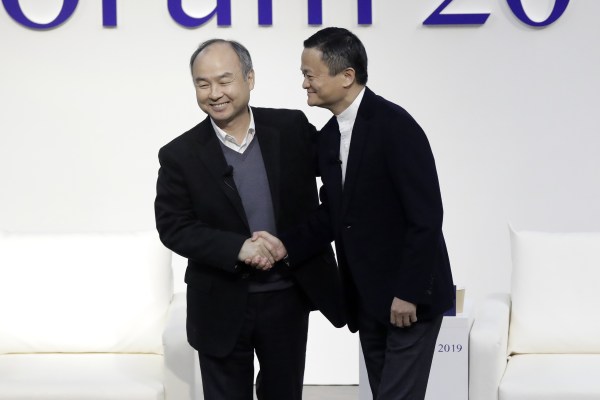
It would be among the best startup financial investments of all time. Masayoshi Boy, riding high in the klieg lights of the 1990 s dot-com bubble, invested $20 million dollars into a fledgling Hong Kong-based start-up called Alibaba. That $20 million financial investment into the Chinese e-commerce business would go on to be worth about $120 billion for SoftBank, which still retains more than a quarter ownership stake today.
That early check and the increase, fall and rise of Child and Alibaba’s Jack Ma helped to seal an elaborately connected partnership that has actually endured years of relentless change in the tech market. Ma joined SoftBank’s board in 2007, and the 2 have actually been tech titans together ever since.
So it is notable and worth a minute of reflection that SoftBank revealed over night that Jack Ma would be leaving SoftBank’s board after almost 14 years.
In some methods, perhaps the news shouldn’t be all that surprising. Jack Ma has been receding from a lot of his tasks, most significantly leaving the chairmanship of Alibaba last year.
Yet, one can’t help connect the different dots of news that hover in between the 2 business and not understand that the collaboration that has endured a lot is now increasingly fraying, and due to forces far beyond the ken of the two dynamos.
On one hand, there is a pecuniary point: SoftBank has actually been quickly selling Alibaba shares the past couple of years after years of going long as it tries to shore up its balance sheet amidst extreme financial difficulties. According to Bloomberg in March, SoftBank planned to sell $14 billion of its Alibaba shares, and that sought $11 billion in realized returns on Alibaba stock in 2019 from a deal consummated in2016 It’s just a bit uncomfortable for Ma to be resting on a board that is actively offering his own legacy.
Yet, there is more here.
And of course, there is the deepening trade war, not just in between the United States and China, but likewise between Japan and China. Japan’s federal government is progressively trying to find a way to discover a “China exit” and become more self-sufficient in its own supply chains and less economically based on Chinese commercialism.
On The Other Hand, the Trump administration has actually been looking for opportunities of decoupling the U.S. from China. Overnight, the biggest chip fab on the planet, TSMC, announced that it would no longer accept orders from China’s Huawei following brand-new export manages put in location by the U.S. recently and its statement of a new, $12 billion chip fab plant in Arizona.
SoftBank itself has actually gotten caught up in these obstacles. As a worldwide corporation, and with the Vision Fund itself formally integrated in Jersey, it has confronted the tightening screws of U.S. regulation of foreign ownership of critical technology companies through systems like CFIUS. Its acquisition of ARM Holdings a few years back might not have been completed if it had attempted today, provided the environment in the U.K. or the U.S.
So it’s not practically a financier and his business owner breaking some ties after two decades in service together. It’s about the fraying of the really globalization that powered the first wave of tech companies– that a Japanese corporation with significant interests in the U.S. and Europe could buy a Hong Kong/ China start-up and enjoy huge benefits. That tech world and the divide of the internet and the world’s markets continues unabated.
TechCrunch.

